For a pet owner, raising a kitten can be both challenging and rewarding. Seeing your kitten grow from a little bundle of energy into an adult, independent cat is life-affirming. However, this transition required some effort to develop their nutritional needs along the way. After all, infants have different nutritional needs than adults, and the same is true for cats: kittens require a specific diet to support the unique life stage they are in, while adult cats need another.
So, When should you switch from kitten to cat food? From recognizing the signs to knowing when it’s time, this guide takes you through all the basics of transitioning your kitten between foods—including practical tips for a successful switch. And keep reading for everything you need to know about giving your new kitten the healthiest start in life possible!
Needs of Kittens vs. Adult Cats Nourishing
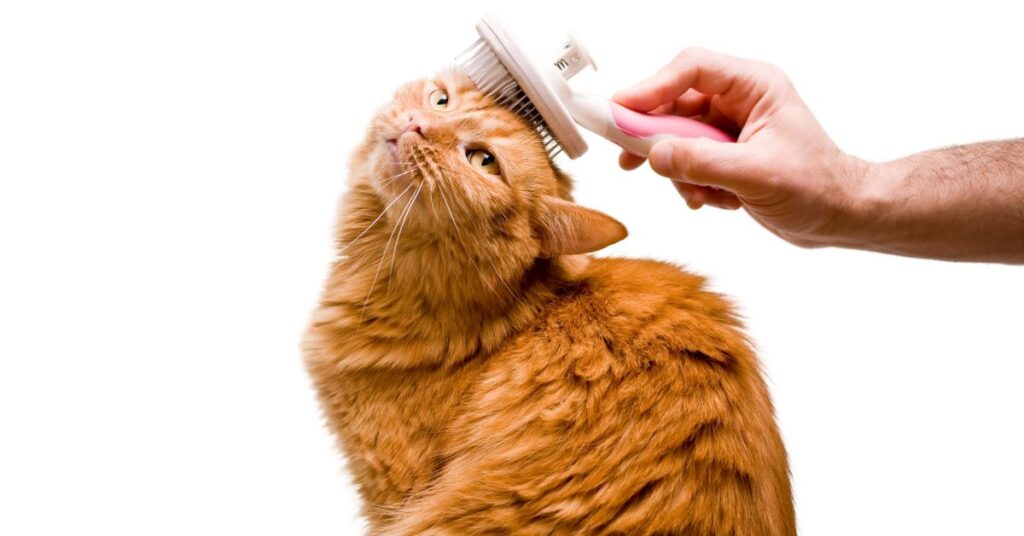
The dietary requirements of kittens differ significantly from those of adult cats later in life. In growing kittens, kidney-based nutrients fuel energy and immunity along with maintaining an overall healthy physical development. Here is a simple explanation of these two requirements.
1. Higher Caloric Intake
Kittens are a lot of work and have high energy levels, so they need to support that rapid-growing body with the right nutrients. Kittens require more calories per pound of body weight than adult cats.
2. More proteins for growth.
Protein: Protein is important for muscle building, cell repair, and immune function. Kitten food contains more protein to facilitate these growth needs, whereas adult cats should consume less of it in order to maintain body weight and overall health.
3. Nutrient-rich (loaded with vitamins and minerals).
Calcium, phosphorus, and Vitamin D are essential minerals that serve as building blocks for strong bones, healthy tooth formation, and immune health in kittens. These nutrients are also needed by Adult cats also require these nutrient meet these developmental requirements, kitten food contains high levels of carefully balanced nutrients.
4. Taurine and DHA (Enhance Vision, Cognitive Function)
The amino acid taurine is important for heart and eye health, while DHA (an omega-3 fatty acid) helps the brain develop. Kitten food contains all of these nutrients at a higher level than adult cat food.
What stage is ideal for transitioning from a baby kitten to cat food?
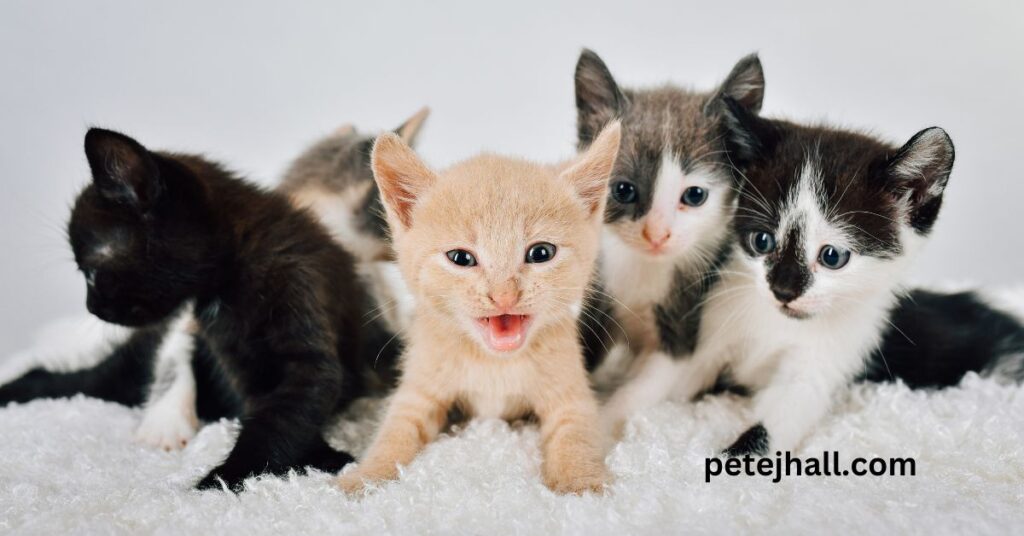
Now, the transition stage of changing from kitty to cat food varies as each feline grows at a different rate. Most veterinarians advise switching between 10 and 12 months. Here’s why:
- 10 to 12 Months: At this age, your kitten will be slowing down her growth rate and transitioning into a maintenance phase, rather than the vigorous growth phase.
- Since kittens at this age reach 75–90% of their full adult size, they should consume more nutrients and receive the appropriate care.
- At 10-12 months of age, their digestive system becomes more capable of processing the reduced calories and protein in adult cat food.
Timing of Transition—What to Look for
- Size: Larger breeds, such as Maine Coons, require more time to mature. Does your cat eat kitten food, Maine Coons example, for up until 18 months to 2 years, so it may need the kitten food beyond a year along with being fed with 過1歳からの子猫養成食?
- If your kitten is extremely active or has been unwell, then the high-calorie nutritious formula in their breed-specific diet may be of benefit for a little longer.
- Weight Control: Senior cats require less food to ensure they do not become overweight, so transitioning onto the right level of adult will assist in preventing obesity.
How Can We Make The Change In Kitten Food To Adult Cat Food?
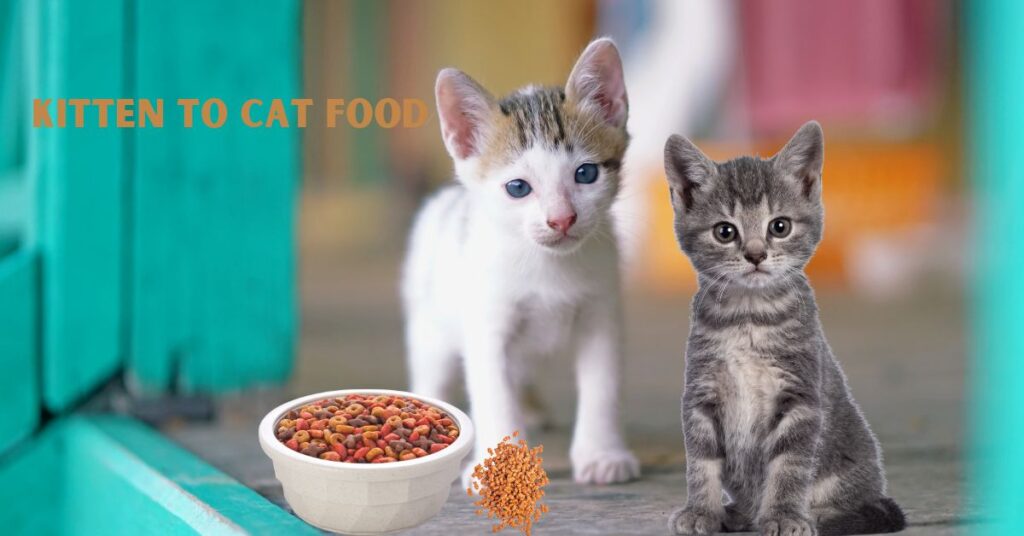
The drawback is that abruptly changing food can cause your cat to become ill in the stomach and suffer from a problem with digestion, so it turns out necessary to slow the switch. To do this, follow these simple, safe steps:
Step 1: Mix foods gradually.
For the first two to three days, mix 75% kitten food with 25% adult cat food. Slowly increase the adult food by 25% every few days.
Step 2: Monitor for reactions
Notice normal stool, appetite, and behavior in your pet cat. If your cat develops any symptoms of an upset stomach (vomiting, diarrhea, and/or decreased appetite) in the course of day-by-day changes to his new meal plan, slow down or contact a veterinarian.
Step 3: Fully transition for the next 7-10 days
Transition your cat to adult cat food within 7-10 days. And the gradual change will help reduce the chance for any tummy upsets.
How do you know your kitten is ready for adult cat food?
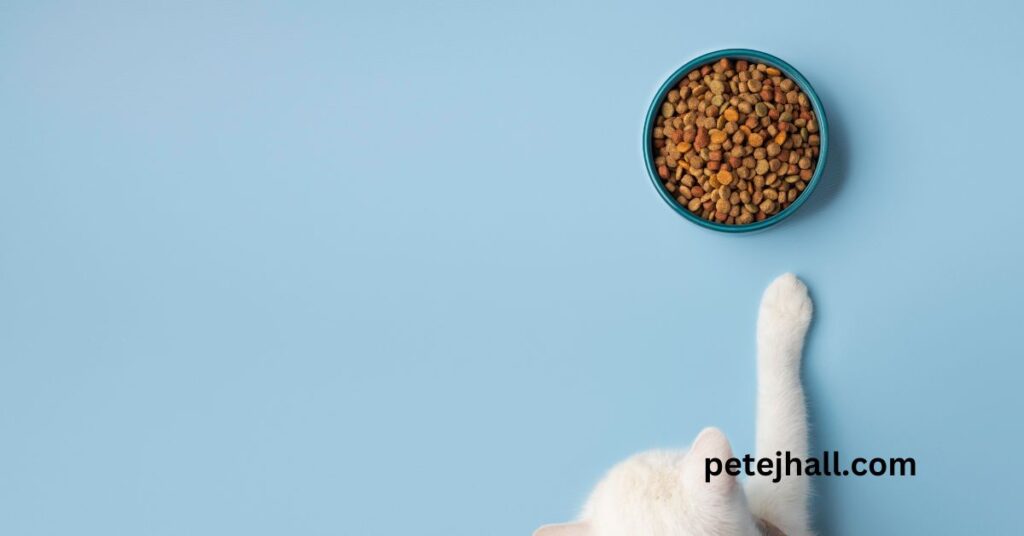
Observing your kitten’s growth is one of the most important ways to determine when they are ready for a different diet. Signs to look for.
- Typical: Most of their growth will have stopped by 10 to 12 months, so it is normal for her weight gain to taper off by then. This suggests they are maturing.
- Less Play—Kittens are more active, but as they age, their playfulness will decrease, resulting in fewer calories being ingested.
Adult cats typically eat a smaller portion than adult cats. Change in appetite: If you notice a significant change in your feline friend’s eating habits, it could be a sign that it’s time to transition to adult food.
Kitten and Cat Food: How Nutrients Differ
Let us explore the difference in nutrition between kitten and cat food to keep your furry kitty pal healthy.
| Nutrient | Kitten Food | Adult Cat Food |
| Protein | Higher for growth | Moderate for maintenance |
| Calories | High for energy | Lower to prevent obesity |
| Taurine & DHA | Higher for eye and brain health | Moderate for adult maintenance |
| Minerals | Increased for bone development | Balanced for adult needs |
Getting the right food can provide them with exactly what they need to live their life appropriate for its stage.
Transition mistakes to avoid
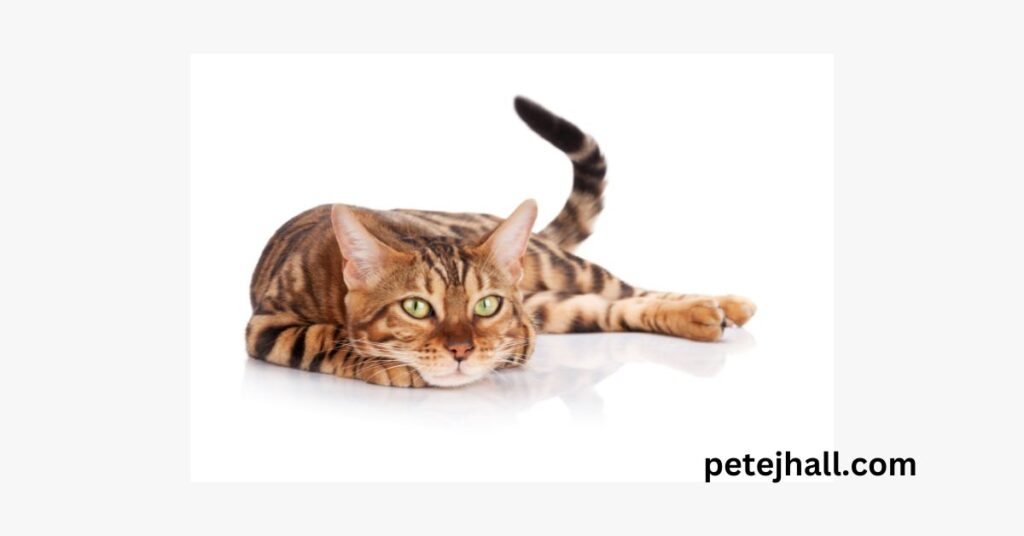
If you can’t avoid it, transitioning too early from kitten to adult food can lead to deficiencies and retard growth and health.
Quick Transition: Changing quickly can upset your stomach, resulting in nausea or diarrhea.
Free-Feeding: Free-feeding is recommended for kittens, but it’s not a good option for adult cats due to their tendency to become obese. Therefore, it’s better to stick to portion control.
Overlooking the prognosis of a veterinarian: As it pertains to moment structure, this is without question accurate, and there are numerous suggestions for feeding However, remember to consult your veterinarian if you are unsure about the timing or dietary needs of your kitten’s your vet.
Conclusion
Your pet undergoes a crucial transition when you switch from kitten to cat food, which signifies the journey to becoming an adult. Understand what they should be eating and how their growth changes during this time, and gradually make the change. You will ensure a smooth transition for them and lay down solid foundations to support good health throughout their life. If you have a breed that has specific dietary requirements or suffers from other unique situations, talk to your vet about what the animal should eat.
FAQ: When should you switch from kitten to cat food?
Should you feed kitten’s adult cat food?
It is not recommended, as dry adult cat food does not contain the necessary nutrients essential for kittens’ growth and development.
What If I Move Too Late?
If you feed your kitten the wrong kind of food for too long (e.g., only adult cat food), they will consume more calories than necessary, leading to weight gain and other health problems.
This is solely regarding proportion: how much adult cat food should I give?
Refer to feeding directions on the food package and adjust according to your cat’s size and activity level. More exact instructions will come from your vet.
Do Big Cat Breeds Have Different Foods?
While some brands have formulas specifically designed for large breeds, adult cat food is generally formulated to work fine with all breeds once they are past the first year.
Senior cats and special dietaries
In colloquial terms, a diet can support joint health, weight control, and reduced calorie consumption for senior cats.

